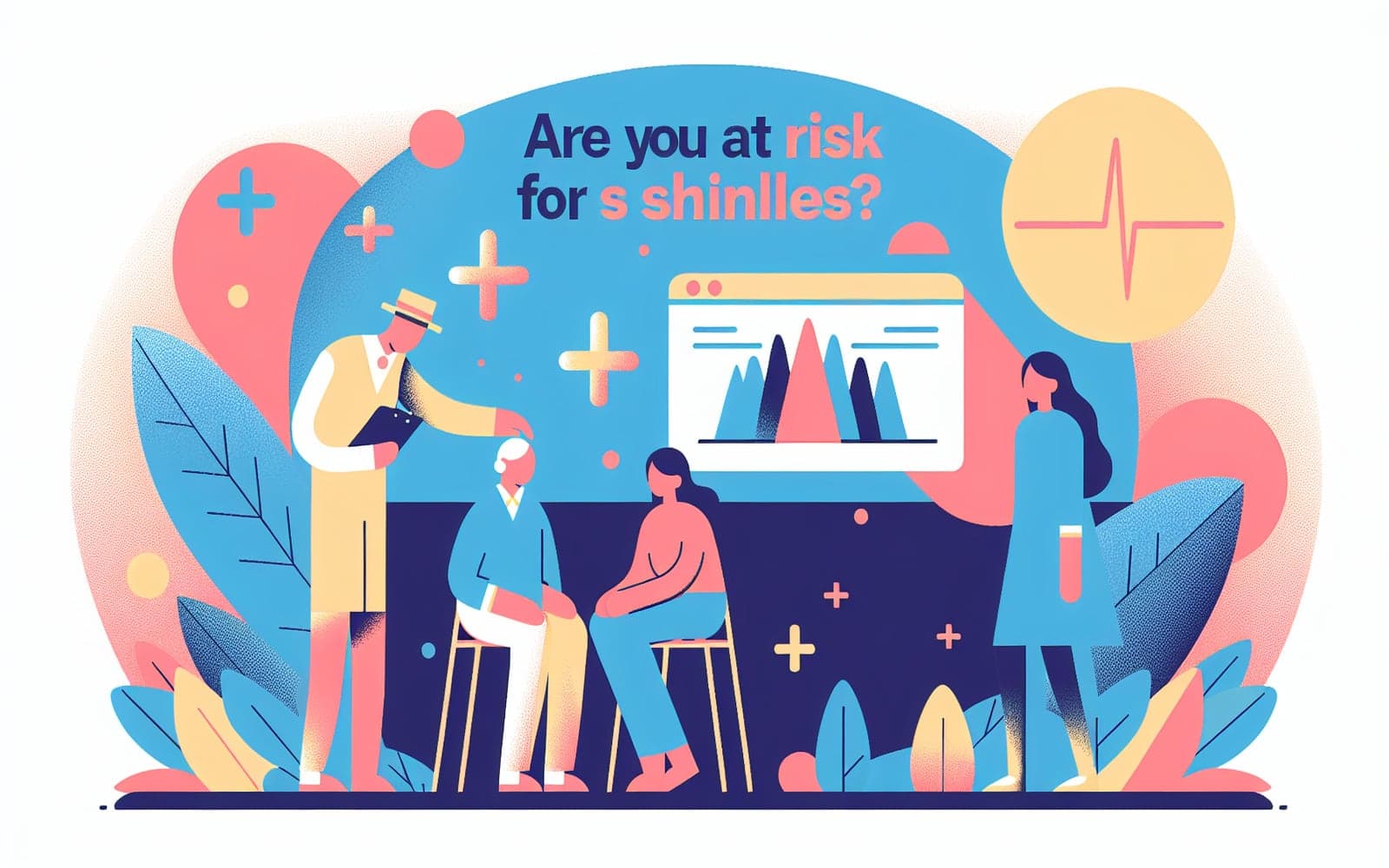Are You at Risk for Shingles?
Are You at Risk for Shingles?
Why It Matters
Shingles can strike when you least expect it, so understanding your risk is crucial. This article explores the factors that can trigger this painful condition.
Contents
- Age and Immunity: Key Factors
- The Impact of Stress
- Medical Conditions and Medications
Age and Immunity: Key Factors
Older adults are more likely to develop shingles due to a natural decline in immunity. The risk increases significantly after age 50 as the VZV can reactivate more easily. Keeping your immune system strong with a healthy lifestyle can help reduce this risk.
The Impact of Stress
High stress levels can weaken your immune system, making it easier for the dormant virus to reactivate. Managing stress through techniques like meditation or exercise can lower your chances of a shingles outbreak. Understanding the mind-body connection is essential in preventing stress-related health issues.

Medical Conditions and Medications
Certain medical conditions and medications that suppress the immune system can increase your risk of shingles. Conditions like HIV or treatments such as chemotherapy are known risk factors. It's vital to discuss these risks with your doctor if you fall into these categories.
FAQs
Who is most at risk for shingles?
Older adults and those with weakened immune systems.
Can stress cause shingles?
Yes, high stress can weaken the immune system.
Do certain medications increase risk?
Yes, those that suppress the immune system can.
Is age a major risk factor?
Yes, especially after age 50.
Know Your Risk
Understanding your risk factors can empower you to take steps to reduce the likelihood of a shingles outbreak.
Additional References
- Levin MJ, Weinberg A, Schmid DS. Microbiol Spectr 2016; 4.
This article has been reviewed for accuracy by one of the licensed medical doctors working for Doctronic.











